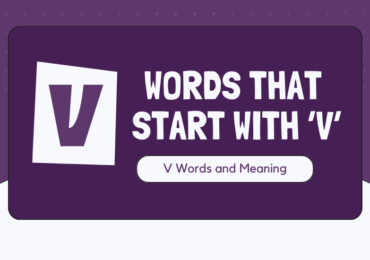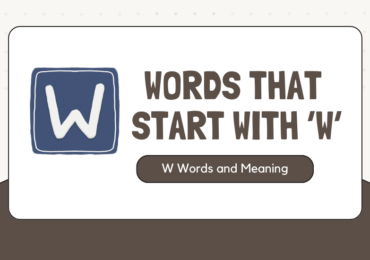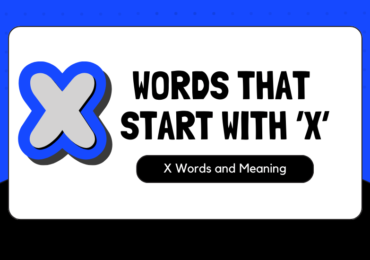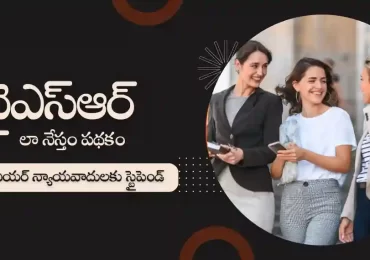A helping verb (also known as an auxiliary verb) is used with a main verb to help express the main verb's tense, mood, or voice.
Helping verbs లేదా Auxiliary Verbs ను తెలుగులో సహాయక క్రియలు అంటారు. పేరులో ఉన్నట్లుగా ఇవి నిజానికి ప్రధాన క్రియలకు నిర్మాణాత్మక, క్రియాత్మక, వివరణాత్మక సహాయాన్ని అందిస్తాయి. విడిగా ఉండేటప్పుడు సహాయక క్రియలకు నిర్దిష్టమైన అర్థం లేకున్నా, అవి ప్రధాన క్రియ ప్రక్కన చేరినప్పుడు, ఆ వాక్యం అర్ధవంతమవుతుంది.
ఈ సహాయక క్రియలను ముఖ్యంగా question Forming కోసం, negative statement క్రీయేట్ చేసేందుకు, క్రియ యొక్క possibility తెలిపేందుకు మరియు verb యొక్క tense గుర్తించేందుకు ఉపయోగిస్తారు. ఇంగ్లీష్ భాషలో ఈ రకమైన సహాయక క్రియలు మొత్తం 13 ఉన్నాయి. వీటిని తిరిగి Primary helping verbs మరియు Modal helping verbs గా విభజించారు.
Primary helping verbs
“be”, “do”, and “have” verbs ను Primary helping verbs అంటారు. "be" అంటే 'ఉండు' అనే అర్ధం వస్తుంది. ఈ సహాయక క్రియలు verb యొక్క state లేదా action గురించి తెలియజేస్తాయి. is, am, are, was, were లను 'be' verbs అంటారు. ఇందులో is, am, are సహాయక క్రియలను వర్తమాన కాలం (present tense) లో, was, were సహాయక క్రియలను భూతకాలం (past tense) లో ఉపయోగిస్తారు.
do, does, did క్రియలను Do సహాయక క్రియలు అని అంటారు. do అంటే 'చేయు' అని అర్ధమోస్తుంది. do, does సహాయక క్రియలను వర్తమాన కాలం (present tense) లో, did సహాయక క్రియను భూతకాలం (past tense) లో ఉపయోగిస్తారు.
- to make negatives (I do not like you.)
- to ask questions (Do you want some coffee?)
- to show emphasis (I do want you to pass your exam.)
- to stand for a main verb in some constructions (He speaks faster than she does.)
Have, Has, Had క్రియలను Have సహాయక క్రియలు అంటారు. Have అంటే 'కలిగి ఉండు' అనే అర్దాన్ని ఇస్తుంది. Have & Has సహాయక క్రియలను వర్తమాన కాలం (present tense) లో, Had సహాయక క్రియను భూతకాలం (past tense) లో ఉపయోగిస్తారు.
| Helping Verb (BE) | Example | |
|---|---|---|
| is, am, are, was, were | I am a doctor. He is sleepy. We are here. We were singing for an hour |
I am not a doctor. He is not sleepy. We are not there. Geetha was singing for an hour |
| do, does, did | I do not want it. We did not want it. He does not want it. |
She doesn’t live here. They didn’t buy any food. He did something rather foolish. |
| Have, Has, Had | I have an idea. I don't have any brothers. The doctor had a lot of experience. |
He has got three Rolls Royces. We haven't got any complaints The house has got eight windows |
Modal helping verbs
We use modal helping verbs to "modify" the meaning of the main verb in some way. A modal helping verb expresses necessity or possibility, and changes the main verb in that sense.
can, could may, might will, would, shall, should, must, ought to లను మోడల్ హెల్పింగ్ వెర్బ్స్ అంటారు. మోడల్ సహాయక క్రియలను అవసరం, అనుమతి లేదా అవకాశాన్ని వ్యక్తపరించేందుకు ఉపయోగిస్తారు. ఇవి ప్రధాన క్రియ యొక్క అర్దాన్ని ఏదో ఒక విధంగా సవరించి, వాక్యానికి పూర్తి అర్దాన్ని కల్పిస్తుంది.
Modal Helping Verb తరవాత వచ్చే ప్రధాన క్రియ లేదా సహాయక క్రియలు ఎప్పుడూ V1 (Verb Base form) గా మాత్రమే ఉంటాయి. ఇంకే రూపంలోనూ ఉండవు. కానీ మోడల్ సహాయక క్రియకు, ప్రధాన క్రియకు మధ్య ఇంకో సహాయక క్రియ వచ్చే సందర్భంలో ప్రధాన క్రియ V3 గా ఉంటుంది.
అలానే మోడల్ సహాయక క్రియలకు మరికొన్ని ప్రత్యేకతలు ఉన్నాయి. ఇవి Gerunds గా ఉండవు. Participles గా ఉండవు. అంటే వీటికి ing రూపం గానీ V3 రూపం గానీ ఉండవు. అలానే ఇవి infinitives గా కూడా ఉండవు.
మోడల్ సహాయక క్రియలకు ఏక, బహు వచన భేదాలు కూడా ఉండవు. Shall, Will ల విషయంలో మినహా, వీటికి సకర్మక, అకర్మక భేదాలు వర్తించవు. అలానే ఇవి Finite క్రియలతో కలిసి ఉంటాయి కానీ, Non-Finite క్రియలతో కలిసి ఉండవు. వీటి ఉపయోగం తెలిస్తే సగం ఇంగ్లీష్ తెలిసినట్లే కాబట్టి, ఇవి ఉపయోగించే సందర్భాలు మరియు ఉదహారణలు వివరంగా చూద్దాం.
Can & Could
| Use | Example |
|---|---|
| Possibility & impossibility (We use could to show that something is possible, but not certain) |
They could come by car. They could be at home. That can't be true. You cannot be serious. |
| Ability (We use can and can't to talk about someone's skill or general abilities) |
She can speak several languages. He can swim like a fish. They can't dance very well. I can see you. |
| Permission (We use can to ask for permission to do something) |
Can I ask a question, please? Can we go home now? Could I ask a question please? Could we go home now? |
| Requests (We use could you … as a polite way of telling or asking someone to do something) |
Could you take a message, please? Could I have my bill, please? Can you take a message, please? |
| Offers (We use can I … to make offers) |
Can I help you? Can I do that for you? I can do that for you if you like. I could give you a lift to the station. |
| Suggestions (We use could to make suggestions) |
We could meet at the weekend. You could eat out tonight |
| Questions & negatives (We make questions by putting the subject after can/could) |
Can I ...? Could I ...? Can you ...? Could you ...? |
May & Might
| Use | Example |
|---|---|
| when we are not sure about something in the present or future. | Ganesh may be coming to see us tomorrow. We may be late for the meeting. She's had no sleep. She may be tired. |
| to ask for permission in a formal way | May I borrow the car tomorrow? May we come a bit later? |
| to give permission in a formal way | You may go now. You may come at eleven if you wish. |
| We use might when we are not sure about something in the present or future. | I might see you tomorrow. It looks nice, but it might be very expensive. It's quite bright. It might not rain today. |
| as the past tense of requests with may | He asked if he might borrow the car. They wanted to know if they might come later. |
| as a very polite way of asking for permission | Might we ask you a question? Might I just interrupt for a moment? |
| Questions and negatives | May I …? Might I …? |
Shall & Will
Shall : In the past, ‘shall’ was often used as an alternative to ‘will’, and you can find many examples of ‘shall’ in famous literary works. But in modern English we usually prefer ‘will’ for affirmative and negative sentences.
Will : The most basic and common form used to express the future is ‘will’. The structure of ‘will’ is easy because it is the same for all subjects and you don’t need to change anything about the verb.
| Shall | Will |
|---|---|
| To make offers using I/we Shall I make some lunch? Shall we help you with your bags? Where shall I drop you off? Outside your office? Shall I water your plants while you’re away? |
To describe the future We’ll be at the hotel until 8pm. The trains will be late today because of the bad weather. How long will you stay in Hong Kong? He’ll send us the report. |
| To make suggestions using I/we Shall we go to the park later? Shall we have something to eat? Who shall we invite to the party? What shall we do after we’ve watched the film? |
To make a prediction The world population will grow a lot in the next 50 years. I think I’ll stay in this company until I retire. She doesn’t think she’ll pass the exam. Who do you think will win the tournament? |
| To express formal obligations Applicants shall provide evidence of their qualifications. Guests shall not remove anything from the rooms. The accused shall appear in court again on 26th October. |
To express a decision made at the moment of speaking I’ll have the vegetable soup please. I’ll answer it. I’ll just go and say ‘hello’ before we leave. |
| To make a promise shall never forget the help you gave me. I shan’t be late. We shall do everything we can to solve the problem. He shan’t be long. Do have a seat while you wait. |
To make a request Will you bring some more water please? Will you come to the appointment with me? Will you be quiet please? You’ll give me a hand with dinner, won’t you? |
| To describe the future very formally We shall overcome this difficult moment. The tests shall be carried out by an independent body. Mr Lopez shall begin his talk at 2:30pm. shall be limited today due to the marathon. |
To make promises and offers I’ll call you when I get home. She’ll help you finish the work, don’t worry. We’ll send you the goods as soon as possible. Lee and Kim will show you around the city. |
Should & Would
Should’ and ‘would’ are auxiliary verbs that can sometimes get confusing. They are the past tense of ‘shall’ and ‘will’ but are also used in other situations
| Should | Whould |
|---|---|
| To express something that is probable Ravi should be here by 2:00 PM. He should be bringing Geetha with him. |
To ask ‘who’, ‘what’, ‘where’, ‘when’, ‘why’ or ‘how’ How would you do that? When would we have time to do that? |
| To ask questions Should we turn left at this street? Shouldn’t you be getting ready for work? |
To make a polite request Would you like any tea? Would you like anything else? |
| To show obligation, give recommendation or even an opinion You should stop eating fast food. We should go to the park tomorrow. |
To ask questions Would you like fries or salad? Would you like to join us tonight? |
Must & Ought to
Must : Must remains unchanged whatever be the tense or the number and person of the subject. It can refer to the present or future. It can point to the past only when it is used with the present perfect tense of the principal verb.
Ought to : Ought is different from other auxiliary verbs: it is followed by a to-infinitive.
| Must | Ought to |
|---|---|
| Must expresses compulsion or strong obligation He must apologize for his mistakes. They must pay the fine. You must be loyal to your country. |
Ought expresses ideas such as duty, necessity, moral obligation We ought to help the poor and the needy. You ought to exercise regularly. She ought to be back by 10 o’clock. |
| Necessity We must get up early and start on our way. Must we wait for them? |
I ought to go. I must go. |
| Must can express probability or likelihood He must be mad to do this. Oh, there is the door bell; that must be the postman. |
She must wait. She ought to wait. You ought to have helped him. |
Have to & Used to
Have to : In general, have to expresses impersonal obligation. The subject of have to is obliged or forced to act by a separate, external power (for example, the Law or school rules). Have to is objective.
Used to :We use this expression to talk about habits or repeated actions in the past which we don't do in the present. We also use it to talk about states in the past which are no longer true.
| Have to | Used to |
|---|---|
| in India, you have to drive on the left. In England, most schoolchildren have to wear a uniform. Sanddp has to wear a tie at work. |
I used to have long hair (but now I have short hair). He used to smoke (but now he doesn't smoke). They used to live in India (but now they live in Germany) |
| I do not have to see the doctor Do you have to go to school? I do not have to get up early. Did I have to get up early? |
Did you use to be a teacher? Did he use to study French? She didn't use to like chocolate, but she does now. I didn't use to want to have a nice house. |
Dare & Need
Dare : Dare is often accompanied with the negative word not to form negative statements. There is contraction of dare not which is daren’t, but it is rarely used. Dare does not change its form, such as ending with an –s for the third person singular.
Need : Need like the other semi-modal verbs can both act as a modal verb and a main verb. It follows the subject and in turn is followed by the main verb.
| Dare | Need |
|---|---|
| How dare you speak to me like that? Don't you dare go in there. I didn't dare answer. I daren't tell her She dare not sleep alone in the dark Dare anyone say I can’t do it? I daren’t tell him the truth; he’ll go crazy. |
He need not apologize because it’s not his fault. Nothing need to be done for now. I need not spend a lot of time for you. I need not go. I do not need to do it. You needn't come if you're busy. |









